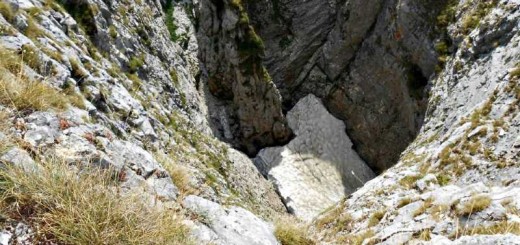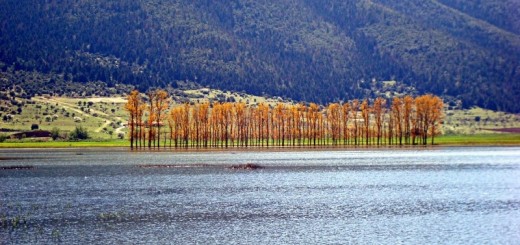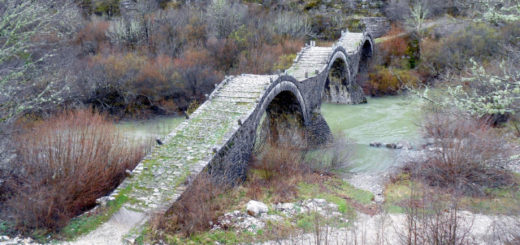Rodopi Mountain Range National Park

The northern mountainous parts of the Regional Units of Drama and Xanthi, in the north-eastern part of Greece, form the Rodopi Mountain Range National Park.
It stretches in an area of approximately 170,000 ha and includes the largest and most productive forest ecosystems in Greece.
The presence of water is also important with Nestos River flowing through the National Park (northwest to southeast); just outside its boundaries, it forms the famous «Stena tou Nestou» site (Nestos gorge) and, further south, its large delta.




The name of the Rodopi Mountain Range has a Thracian provenance. In Greek mythology, the mountains was given human look and Queen Rhodope of Thrace, the wife of King Haemus of Thrace, was along with her husband changed into the so-called two present mountains by Zeus and Hera as a punishment. Rodopi Mountain Range is associated with myths about the Thracian musician Orpheus.
The history of the area has contributed to developing and preserving a highly diverse environment.
It is worth noting that the area of the National Park is the southernmost limit of distribution of Norway spruce in Europe and the only area in which this species occurs in Greece.
Among the approximately 1,200 species and subspecies of plants that have been so far recorded, at least seven (7) are local endemic (such as the famous yellow Rodopi lily), other are endemic to Greece and the Balkans, while dozens other reach here the southernmost limit of their natural distribution.


It is the site of the Simida Forest, the only birch forest in Greece, the Elatia Forest, a forest of norwegian spruce, and the Virgin Forest of Frakto –a natural heritage monument and a rare ecosystem in Europe.
It is a refuge for animals, including threatened species like the brown bear, chamois, wolf and the red deer (the only natural population in Greece), but also for bird species such as capercaillie, hazel grouse and golden eagle.

It is a place of sinuous streams, impressive waterfalls and beautiful forests.
The natural landscape hosts traditional villages and stone threshing floors, watermills and arch stone bridges.
Marked routes and recreation sites invite the visitor and entice him to explore its treasures.


In general, you should know that:
- Camping and overnight stay are not allowed. If you would like to stay overnight in the National Park, you could do so at one of the stations of the Greek Forest Service (call them first!). Of course, you could stay in one of the private tourist accommodation establishments.
- It is forbidden to cut plants or parts of plants. Leave vegetation as you found it.
- It is forbidden to light fires. It is extremely dangerous, especially in summer.
- It is forbidden to litter. Carry your litter to the nearest bin.

We also advice:
- Always notify relatives or friends on the exact date and the exact time during which you hike a specific trail. If this is not possible, inform the staff of the National Park’s Managing Body. This information could prove very useful in case we need to organize a search for you. Do not forget that your mobile phone does not have signal in all areas of the Park.
- Be properly prepared. Wear appropriate clothes and shoes and be prepared for any sudden weather changes. Always have water with you and do not forget the batteries, especially if you are using a GPS device.








